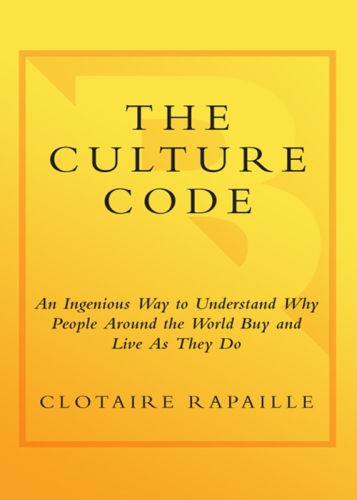
The Culture Code
An Ingenious Way to Understand Why People Around the World Live and Buy as They Do
کتاب های مرتبط
- اطلاعات
- نقد و بررسی
- دیدگاه کاربران
نقد و بررسی

May 1, 2006
French-born marketing consultant and psychoanalyst Rapaille takes a truism—different cultures are, well, different—and expands it by explaining how a nation's history and cultural myths are psychological templates to which its citizens respond unconsciously. Fair enough, but after that, it's all downhill. Rapaille intends his theory of culture codes to help us understand "why people do what they do," but the "fundamental archetypes" he offers are just trumped-up stereotypes. He often supports jarring pronouncements ("The Culture Code for perfection in America is DEATH") with preposterous generalizations and overstatements, e.g., Japanese men "seem utterly incapable of courtship or wooing a woman." Writing with the naïveté of someone who has learned about the world only through Hollywood films, he seems unaware that every person living within a nation's borders doesn't necessarily share the same cultural biases and references. Rapaille's successful consulting career is evidence that he's more convincing in the boardroom than he is on the page. Amid the overheated prose and dubious factoids, it's easy to overlook the book's scattered marketing proposals and employee-management tips.

May 1, 2006
Why do people behave the way they do? Transplanted French-born psychiatrist and popular marketing consultant Rapaille offers readers a new paradigm for contemplating human activity. From his research on the impact of emotion on learning, Rapaille theorizes that human behavior and decision making are based in large part on cultural archetypes, or -Culture Codes, - the unconscious meanings people ascribe to concepts such as beauty, work, and food, based on the culture in which they were raised. Building on this notion of cultural archetypes, Rapaille analyzes two dozen aspects of American society, defining culture codes for everything from health to shopping to seduction, and contrasting these codes with those of other cultures. This book has been compared with Malcolm Gladwell -s "Blink: The Power of Thinking Without Thinking" though Rapaille -s prose lacks the style that made "Blink"a pleasure to read. Still, the comparisons between American codes and the codes of other cultures are entertaining, and businesses may well benefit from the implications his conclusions have for marketing their products. Recommended for corporate and public libraries. " -Elizabeth L. Winter, Georgia State Univ. Lib., Atlanta"
Copyright 2006 Library Journal, LLC Used with permission.

























دیدگاه کاربران